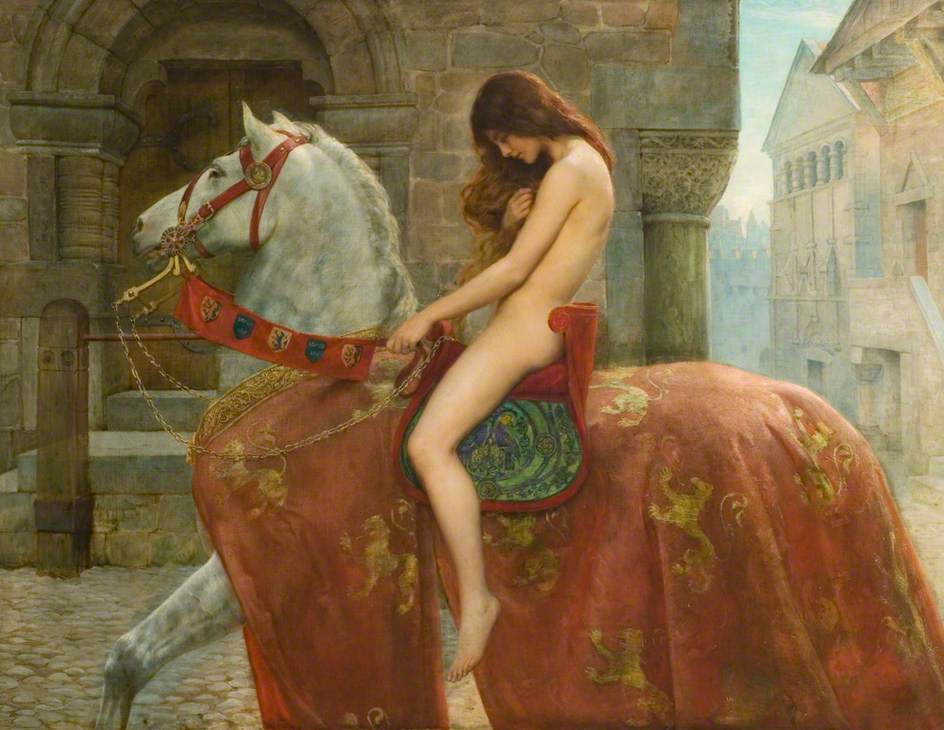John Collier, Lady Godiva, 1898
56 x 72 in.
John Collier (1850-1934) was and English artist and author of the pre-Raphaelite period. Like most Pre-Raphaelites, much of his work focused on Classical, historical, and religious scenes. Among his best known works are The Priestess of Delphi, Tannhäuser in the Venusberg, and his portrait of Charles Darwin, which successfully communicates all intensity, intelligence, and conflict that Darwin entered the world with. Lady Godiva is a beautiful painting and an interesting version of the legend. The story dates back to the thirteenth century, and concerns the eleventh-century Countess Godiva. She supposedly rode her horse through the town nude and clothed only in her hair to protest her husband's oppressive taxation of the townspeople. Although the story is considered to have no historical merit, it has certainly taken root in the popular imagination, even giving us the phrase Peeping Tom (a proclamation was issued that the citizens should stay inside with doors and shutters closed during the ride and man named Tom was the only one to disobey and spy on the countess; he was subsequently struck blind). While most images of Lady Godiva show her proud and unabashed, Collier's seems somewhat ashamed of herself. She crouches forward and hides herself, looking downcast. She also appears to ride quite slowly through the streets. Collier demonstrates his skill in the beautiful texturing of each element of the scene. The stonework appears solid and worn, while the drapery on the horse is handled quite delicately. Godiva's soft skin and fine hair contrast with the horse's musculature and and course mane. Notice also the detailed coloration on the horse's neck that adds to the realism. Godiva herself is rendered quite beautifully, every contour of her body depicted with great care. Godiva's gambit works in the story, by the way. Her husband lifted his oppressive taxes on the poor villagers.

No comments:
Post a Comment